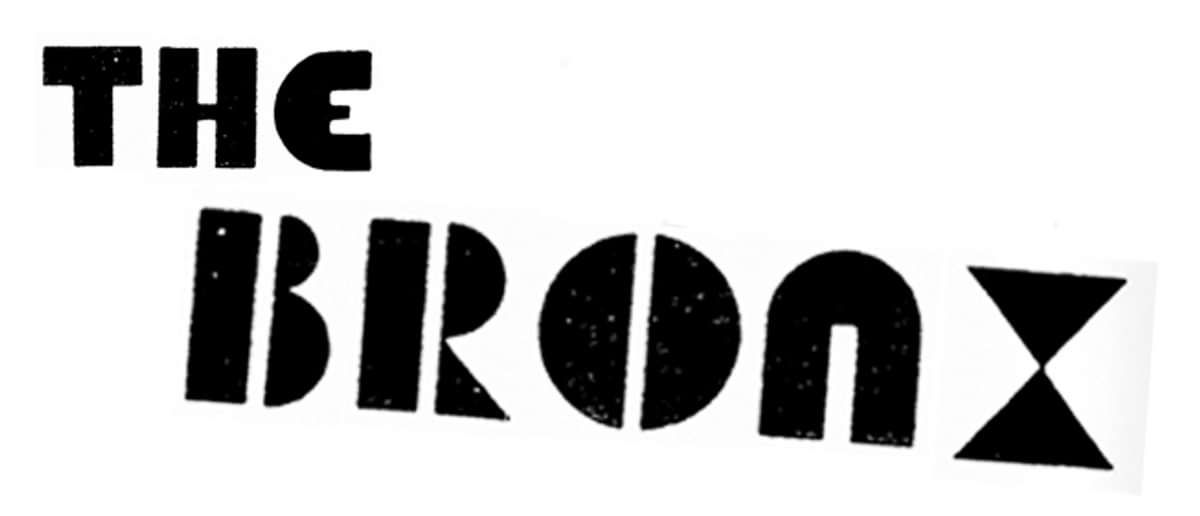The Bronx is what punk needs: they harness the genre’s classic fire but then bend it to their whim, forging rock n’ roll swagger together with hardcore grit. The L.A. quintet churn out raw riffs and piercing hooks, and their third offering, The Bronx (III), brandishes enough savage charm to spark a revolution. Matt Caughthran croons and screams about fun, family-friendly characters like “Knifeman” and the “Pleasure Seekers.” Joby Ford and Ken Horne’s guitar playing blasts like a machine gun, while Jorma Vik’s drumming is fierce, fiery and furious; amidst the aural assault, Brad Magers holds a tight bass groove. Over the course of their first two offerings, the band garnered massive critical claim and carved out a national fan base from touring with the likes of Mastodon, Converge and Every Time I Die. They even occupied a main stage spot on 2008′s Warped Tour. L.A. has been “in the know” about The Bronx for years, but with this new album, the band’s about to expose the whole world to their bleeding and ravenous rock n’ roll spirit. You’ve been warned.
On The Bronx (III), the band channels their kinetic live energy through razor sharp wit and unbridled aggression. Joby describes their style best: “The Bronx sounds like five guys playing their asses off. It’s very serious, but it’s witty too. The music is a channel of positive energy rather than negative energy. We enjoy what we’re doing.” The Bronx get brutal, but they do it with a huge smirk. Matt elaborates, “It’s a strange type of aggression. It always comes out of the same places—anger and frustration. The sound of The Bronx lies within its members. We have so many different influences, styles and quirks that somehow the chemistry between all of it works, and it creates something new.” Songs like “Past Lives,” “Young Bloods” and “Enemy Mind” rip and roar with a fresh ferocity, while Matt opens up a little bit on this album through cuts like “Inveigh.” He says, “There are a couple songs about being on the dark side of things. Going into recording, I was dead broke and trying to make a better life for myself. However, I felt like a criminal. It was a real dark time. As much as I hate dark times, they’re very inspiring. It’s nice to go on a little trip down the bad path sometimes.”
The Bronx came together in Los Angeles in 2002 with the core of the band initially comprised of Joby, Jorma and Matt. Quickly, the band developed a much-lauded and insanely intense live show, garnering attention around town. They became the talk of the underground and after 12 shows, found themselves signing a major label deal with Island/Def Jam. The band released their eponymous debut, The Bronx, in 2003 and toured the world endlessly for two years before hunkering down to create their breakthrough, The Bronx (II), in 2006. The press ate up the band’s no-frills approach to rock as well as their undeniably brutal live show. Suddenly, they’d become critical darlings. Yet in spite of all the attention, the band has always maintained a solid conception of their identity, keeping every album self-titled and utilizing Joby’s artistic talents for the cover art on each release.
The Bronx cooked up these tracks at their own studio “Big Game Lodge” in Van Nuys, CA, enlisting the production talents of Dave Shiffman (The Mars Volta, System of a Down) and the mixing mastery of Machine (Lamb of God, Velvet Revolver). After amicably parting ways with Island/Def Jam, the band chose to release The Bronx (III) on their own label, White Drugs, taking the independent route to focus on what matters most: the music. The band went the independent route to focus on what matters most: the music. Joby explains, “I grew up on bands that played because they had to. They would go crazy if they didn’t play. They just played, and if someone gave them a deal, it was cool. If not, it didn’t matter because they were going to release their music anyway. Get back to square one — put out records, play shows, call it a day. That’s what we do. It’s very simple.”
The Bronx eschew Hollywood hipster snobbery, but they’re too clever for the Sunset Strip. They’re just real. “Los Angeles is our soul,” comments Matt. “The band taps into Los Angeles without overexposing it. We use the city for its history and art. I respect the city I was born in, and it feels good to have a kinship with it.” However, they’re about to bring that unique mystique to the masses. They’ll turn even the most discerning heads because they’re more than musicians, they’re something of a misfit artist collective. The Bronx also recently made their film debut in The Germs: What We Do Is Secret, playing the legendary Black Flag in the movie.
In the end, it’s about fun. Joby concludes, “This band has always been about friends traveling the world together and playing shows. It’s fun because all of us are doing what we want to do—not what someone else wants us to.” What’s more punk than that?
